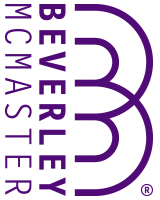In 1999 Tony Deifell (http://www.wdydwyd.com) was asked by a 12 year old child ‘Why do you do what you do?”. Such a powerful question, Tony had to really work for an answer. In 2004 he and a friend Mardie Oakes started asking other people the same question. In 2009 Simon Sinek published his first book called ‘Start With Why’ and by 2014 the accompanying Ted Talk has had in excess of well over 20M views http://bit.ly/1ur9H7s
So why do I do what I do? I can come up with lots of ‘whys’ but it all boils down to the fact that I believe that our world desperately needs new forms of Leadership. I’d like to think that I could have the influence and power to be able to create seismic shifts but that’s pretty unrealistic. Instead, it’s about joining a community, being part of a voice that is calling for more present, more conscious and connected forms of Leadership.
What do I mean by that?
At it’s simplest level I think that we are out of touch with who we are and what makes us happy. Many of us get caught up in the treadmill of life, the rat race, the ever spiralling quest for bigger, better, faster at any cost. We have disconnected to what is really important to us. And yet, I meet people every day who have a deep deep desire to find another way. That’s my big picture ‘why’. We need to create a seismic shift in our world which requires that we all courageously step into Leadership.
At another level, I recently had a client who emailed to say that the work we did was still helping him, that he was able to remain connected to what was really important to him as a Leader, remember what he was good at and what he was there to do. He’d been passing on what he had learnt to others who were experiencing anxiety, stress, who were not performing as they were really able to. That’s my smaller picture ‘Why’. The ripple fffect, or put another way, from little acorns grow big trees.
Why do I do what I do? Because grand stage or small stage, what got us here, will not get us there – deep down I think that we know that we need different forms of Leadership.
I specialise in Somatic Coaching, a very often unfamiliar term. Grounded in Neuroscience it offers a powerful and effective road to change in a way that other forms of coaching do not. Derived from the Greek “Soma” (roughly translated as the body in it’s living wholeness) it offers a comprehensive approach to change and transformation that envisions individuals as conceptual, biological, emotional, spiritual and social beings (http://www.generativesomatics.org).
Call it change, transformation, growth or development, Somatics argues that achieving something new in our lives needs complete attention to ‘everything that we are’. How many times do we ‘know what we need to do’ and yet we are not able to do it? Knowing cognitively is often not enough, quick tips and fixes are often not enough. Instead we can be caught in patterns of behaviour, often operating below our conscious awareness, that need exploring, changing or adding to.
As human beings the cultural, institutional, political and historical forces that we are immersed in shape and influence our every day life. These forces have a significant often unobserved impact on how we have grown and evolved. They shape our language, our emotional response and how we physically show up. Think for a moment on ‘blonde jokes’ prevalent certainly in English speaking, western cultures. We talk about having a ‘blonde moment’, without a second thought. Where does this idea come from – what does it say about how we regard blondes? There are many ways in which our language both reflects and shapes our thinking. It’s the same with our emotional and physical presence.
It is the role of the somatic coach to help the client bring attention to everything that is at play for them within the domain of the challenges they face. It requires the skill of mindful attention and awareness to what is on and below the surface from both the client and the coach. It requires determination to integrate new practices and new ways of working with ourselves beyond the self-talk of ‘come on, you should be able to do this’. By taking more than a functional approach to our lives, we can find ourselves enriched, more capable, with more confidence, more determined and more connected to why we do what we do.











